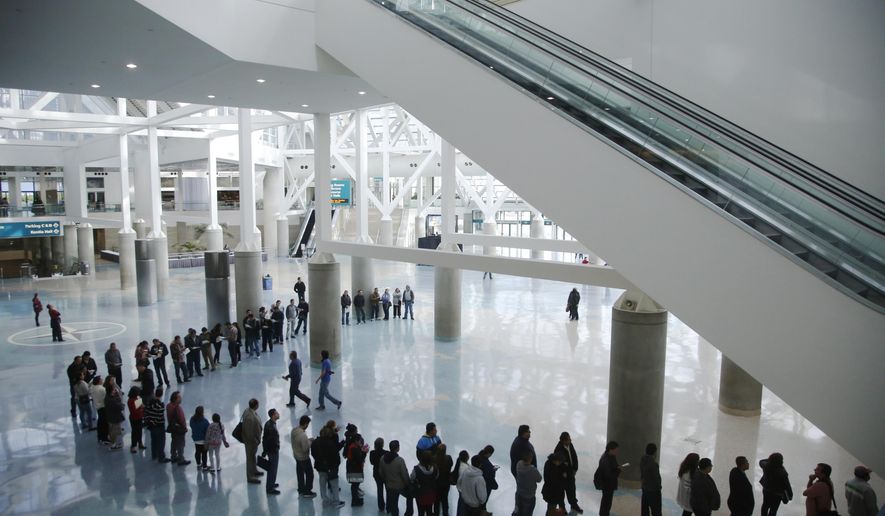Halting President Obama’s deportation amnesty will end up hurting Uncle Sam’s bottom line, the Congressional Budget Office said Thursday in a new report that is bound to cause more problems for Republicans trying to block the White House’s executive action.
While keeping illegal immigrants in the shadows would save the government billions on spending, it would also mean billions in taxes that never get paid, leaving the federal budget a total of $7.5 billion worse over the next decade than it would be if Mr. Obama’s amnesties take effect as scheduled, the CBO said.
House Republicans have passed a bill to cancel the 2012 amnesty for so-called Dreamers and last November’s new amnesty, which expands the policy for Dreamers and enacts a new program for illegal immigrant parents.
The bill is now awaiting action in the Senate, where GOP leaders said they plan to tackle it beginning next week.
While the White House has said up to 5 million illegal immigrants would be eligible for the two amnesties, the CBO said it expects only about 1.5 million parents and 750,000 Dreamers to take advantage by 2017.
“CBO expects that the parents who are eligible for this program will be less likely than the people who are eligible for the original program to declare their unlawful presence to the government for a three-year deferral; in addition, they may have a harder time proving eligibility,” the analysts said.
Canceling the amnesties would mean those folks don’t come forward and don’t get the work permits that go along with the amnesty, sending many of them back to work off-the-books, which means less tax revenue for the government. The CBO said payroll taxes would take the biggest hit, suffering a $17 billion decline.
On the other hand, illegal immigrants won’t get some tax credits and would be less likely to sign their U.S. citizen children up for benefits for fear of being exposed to the law, which would save the government money.
Among those benefits programs that would see less spending are: Pell grants for attending college, which would see 15,000 fewer enrollees; federal student loans, with 5,000 fewer beneficiaries; food stamps, with 40,000 children whose parents wouldn’t sign them up; and Social Security’s disability program, which would cover 15,000 fewer disabled children whose parents would balk at coming forward.
• Stephen Dinan can be reached at sdinan@washingtontimes.com.




Please read our comment policy before commenting.